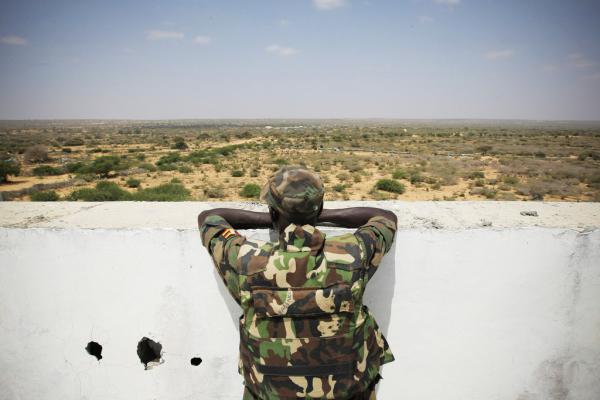For decades, writers from the Horn of Africa have been seen as passive witnesses, who, despite experiencing the horrors of conflict, remain silent and immune to the destruction around them. However, conflict and violence can became the fodder that feeds writers’ creativity…

- © A Ugandan soldier serving with the African Union (A.U.) Mission in Somalia (AMISOM) looks over an open tract of land from the roof of Mogadishu University, 2012 (United Nations Photo/Flickr)
A character in Somali novelist Nuruddin Farah’s novel, Links, remarks that « in civil wars, both those violated and the violators suffer from a huge lack – the inability to remain in touch with their inner selves ».
In an essay on Farah’s writings, Fatima Fiona Moolla notes that this inability manifests itself pathologically as schizophrenia or madness – « psychological responses to a society self-destructing ».
The « collective insanity » of a country such as Somalia that has been destroyed by civil war, Moolla adds, needs to be understood as « the betrayal of one Somali by another » (…)
[Read Ransa Warah’s full article pusblished in the Daily Nation]
[Ce billet est également publié sur le portail de la revue Africultures]
